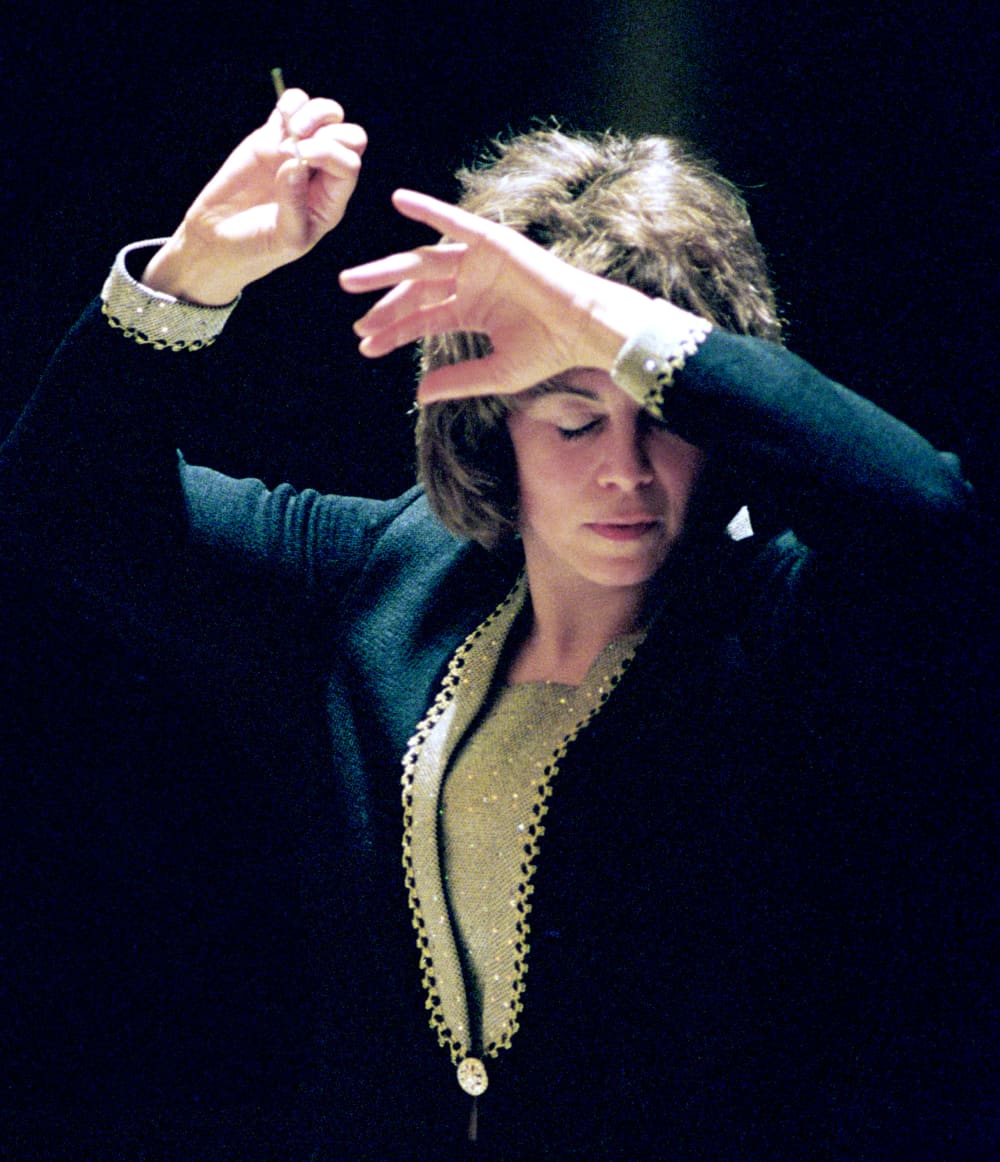The CultureMap Interview
Rock star conductor JoAnn Falletta pops in on the River Oaks Chamber Orchestra
 JoAnn Falletta in action.Photo by Jim Bush
JoAnn Falletta in action.Photo by Jim Bush JoAnn Falletta is performing with the River Chambers Orchestra Saturday andSunday.Photo by Cheryl Gorski
JoAnn Falletta is performing with the River Chambers Orchestra Saturday andSunday.Photo by Cheryl Gorski Falletta is a passionate advocate for classical music and looks forward toworking with Aleicia Lawyer.Photo by Enid Bloch
Falletta is a passionate advocate for classical music and looks forward toworking with Aleicia Lawyer.Photo by Enid Bloch
JoAnn Falletta, rock star conductor, returns to Houston for the River Oaks Chamber Orchestra's (ROCO) opening weekend on Saturday and Sunday. Talk about starting a season with one high-profile baton.
Falletta, most known as the music director of The Buffalo Philharmonic Orchestra (BPO) and the Virginia Symphony Orchestra, has just released the first in a series of recordings on the Naxos label of the music of Marcel Tyberg, a Holocaust victim, whose scores were lost until now. A passionate advocate for the future of classical music, Falletta is a frequent contributor to several publications and also the author of Love Letters to Music, her first book of poems.
Falletta took time out on the eve of the BPO's 75th Anniversary to discuss her Houston visit, recent recordings, and her nonstop life in music with CultureMap.
CM: The thought of you in the same room with ROCO's founder Alecia Lawyer is simply explosive; two powerhouse women in classical music collaborating makes perfect sense. How did your path's cross? Both of you are evidence of the rising power of women in music. Can you speak to that as well?
JF:. A friend told me about Alecia and ROCO. He said it was something you need to see to believe and he was right. Alecia is a major force. She is doing what so many orchestras are trying to do by reaching the audience in innovative ways. It's so different and satisfying to conduct ROCO. They need an open-minded conductor who is not rigid. I am so glad to be back.
It's hard for me to have a perspective on women in classical music because I have wanted to be a conductor since I was seven years old. I got lucky that it's now something possible for women. Even 50 years ago, if you look at symphony orchestras, they were mostly men. Now, there are many more women musicians, composers and soloists. It has taken the longest to have more women conductors. Change happens slowly.
CM: The ROCO program includes Mendelssohn's Symphony #3, Ligeti's Concerto Romanesc, and the world premiere of Scott McAllister's Rhapsodie for String Bass and Chamber Orchestra, performed by ROCO principal bass Sandor Ostlund. How do all those selections come together to make a delicious musical meal for our ears?
JF: If you are making a meal, every course needs to be different, yet somehow complement each other. A concert is like that. The Mendelssohn is a chestnut. It's fantastically beautiful. When Mendelssohn was a young man, his parents took him on a trip to Scotland. He was so taken and overwhelmed by the water, the sky and the power of the waves, that he wrote this piece. It remains a perfect portrait of the geography of Scotland.
The Ligeti is a surprising piece in that it's based on Hungarian folk music. Sometimes people are afraid of Ligeti. They will understand the soil of Hungary. And, of course, McAllister's new work is a wonderful piece. I know audiences will respond to it. It's important to select new music that you feel passionately about.
CM: I feel so proud to be from a city that can claim to have supported a symphony orchestra for 75 years. It seemed when I was growing up just about everyone knew the name of the BPO conductor. They were considered local cultural leaders and heroes. Congratulations on turning 75. What do you have to say for yourself as the one standing at the helm of his beloved cultural pillar of Buffalo?
JF: It says a lot about Buffalo and the surrounding Erie County. They have valued and cherished this orchestra for 75 years. And you know it's a city that has gone through troubled times. It makes me proud that we have this incredible cultural environment that cares about the arts and history of great music.
CM: Tell us about your discovery of Holocaust victim Marcel Tyberg's scores. To think that the legacy of this composer, who died in Auschwitz in 1944, could have been forgotten is tragic.
JF: It's such an interesting story. A gifted surgeon, Dr. Henry Mihich studied with Marcel Tyberg as a child in Italy. Tyberg left his scores with the doctor, entrusting him with this legacy. He never returned and Henry has been trying to get this music into the world for many years. He came to me with a shopping bag full of scores, handwritten and falling apart. This is wonderful music that no one has ever played. It's a Buffalo story about not giving up.
CM: What do you do when you are not making music?
JF: I ride my bike. I am a big reader and an avid snorkeler. Oh, and I write poetry.
